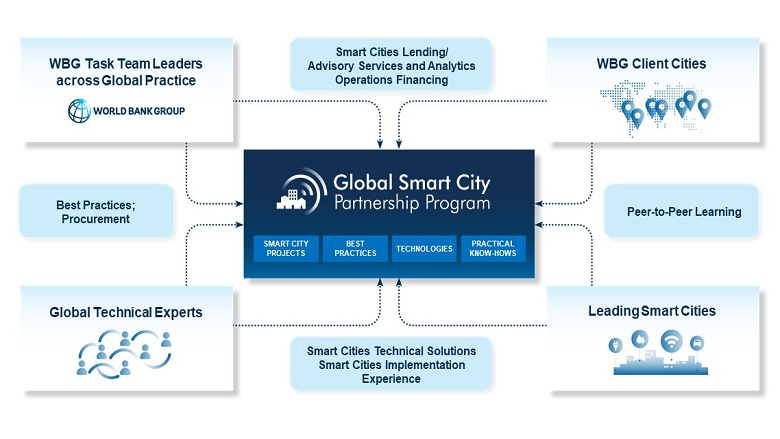Other resources
The Smart City Hub Switzerland Association serves to promote cooperation and the exchange of knowledge. The declared aim of the Association is to promote cooperation and the exchange of knowledge between Swiss cities and their businesses, service providers close to the federal government, as well as federal agencies and research in the Smart City area. It is intended to enable its members to use synergies and to share the knowledge and skills required for this purpose. The central task is to support the implementation of projects, in particular to save time and costs. Further tasks are the promotion of dialogue and cooperation, the development of innovative solutions that are close to the citizen and customer, and the use of synergies and scalability.
Innosuisse is the Swiss Innovation Agency. Its role is to promote science-based innovation including smart city solutions in the interest of the economy and society in Switzerland. Innosuisse especially promotes the partnership between academia and the market with innovation projects, networking, training and coaching, laying the groundwork for successful Swiss start-ups as well as innovative products and services. It provides considerable benefits for a prosperous and sustainable economy. Innosuisse is a federal entity under public law with a separate legal personality. It provides support in accordance with the subsidiarity principle: it only supports projects if the innovation could not be implemented and market potential would not be tapped into without funding.
The World Smart Sustainable Cities Organization (WeGO) is an international association of city and other local governments, smart tech solution providers, and national and regional institutions committed to the transformation of cities into smart sustainable cities. WeGO’s Secretariat is based in Seoul and supported by regional offices in Africa (Abuja, Nigeria), East Asia (Chengdu, China), Eurasia (Ulyanovsk Region, Russia), the Mediterranean (Beyoglu, Turkey), and Latin America (Mexico City, Mexico). WeGO has more than 200 members around the world and serves as their international platform to improve the quality of life, innovate in the delivery of public services, and strengthen regional competitiveness.
The Smart Cities Marketplace was created by merging the two former European Commission projects “Marketplace of the European Innovation Partnership on Smart Cities and Communities” (EIP-SCC) and the “Smart Cities Information System” (SCIS) into one single platform. It is a major market-changing undertaking that aims to bring cities, industries, SMEs, investors, researchers and other smart city actors together. The Smart Cities Marketplace has thousands of followers from all over Europe and beyond, many of which have signed up as a member. Their common aims are to improve citizens’ quality of life, increase the competitiveness of European cities and industry as well as to reach European energy and climate targets.
The UNDP Global Centre for Technology, Innovation and Sustainable Development (GC-TISD) is a hub for knowledge and policy relating to sustainable development, with the emphasis on connecting top policymakers, practitioners, think tanks, business and other relevant stakeholders for learning and sharing of best practices on the themes of technology, innovation, and partnerships for sustainable development. UNDP GC-TISD is also a platform to study and showcase successful examples of innovation and partnerships to achieve sustainable development, leveraging Singapore as a living lab for global sustainability solutions, UNDP’s global development advisory and implementation services network, and UNDP’s partnership-building efforts within the UN system and with the international financial institutions.

